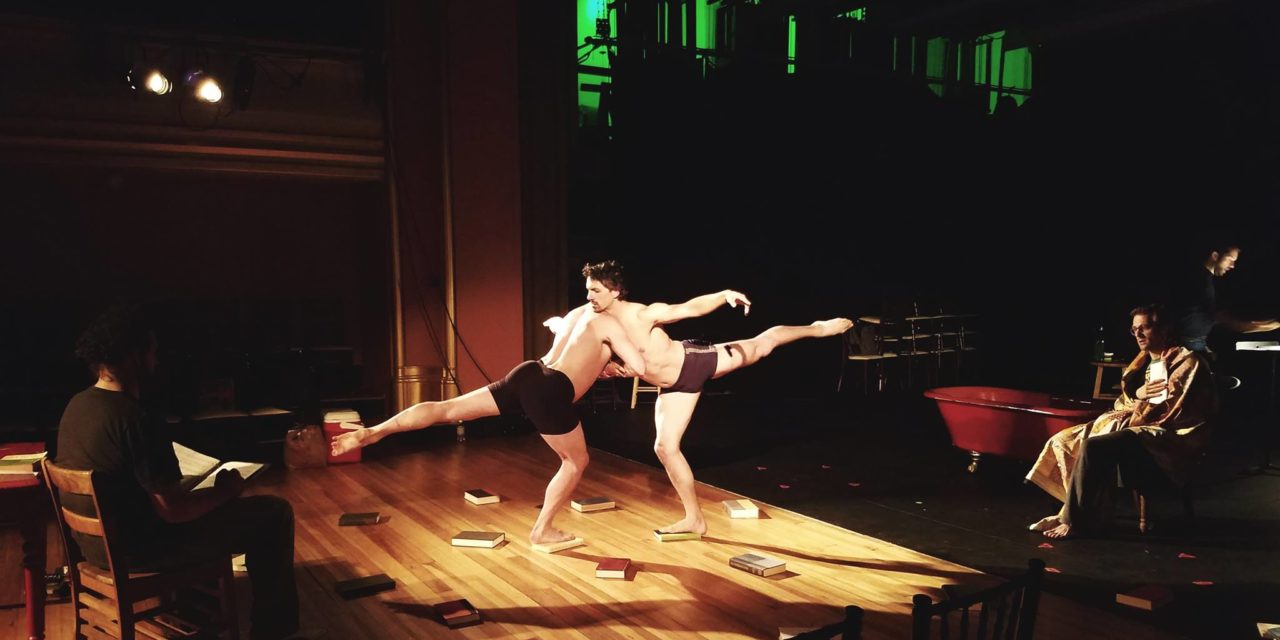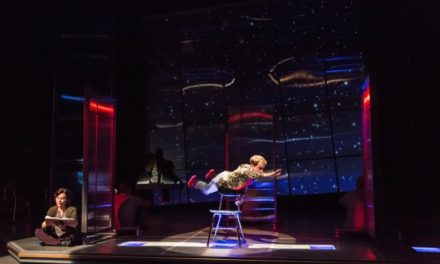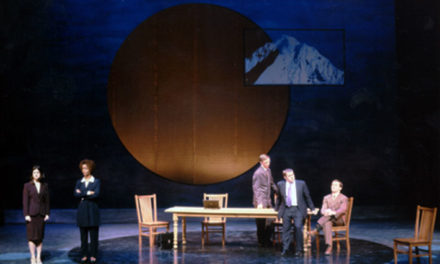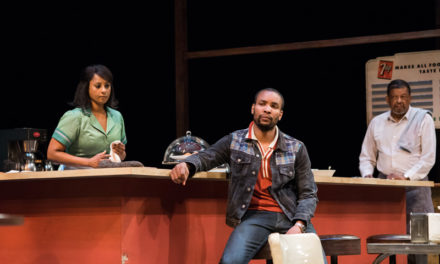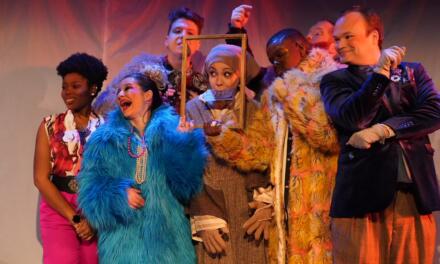Clint Borzoni is the current Composer-in-Residence for Musica Marin, a non-profit organization that presents, supports, and inspires classical music throughout the San Francisco Bay Area. He studied with Pulitzer Prize-winning composer David Del Tredici at the City University of New York where he received an MA in Music Composition. He lives and works as a composer and teacher in New York City.
I took an opportunity to chat with the gentle, well-focused yetsoft-spokenn Mr. Borzoni. We discuss his passion for classical music and how that passion has culminated into his very psychological opera, entitled When Adonis Calls.
DV: As a kid, did you know that you wanted to pursue music composition, and if so, was there something else that inspired your pursuit?
CB: My love of music was discovered when I first saw Looney Tunes cartoons. The show had classical music playing in the background. I asked my mom “what is that music – I never heard anything like that?” She informed me that it was Classical Music, and I said “well, I want to hear more of that.” We had no classical music in the house except for some 8-track tapes. Since we didn’t have an 8-track player, she took me to the record store, Sam Goody, and said, “here’s the classical section, pick out whatever you want and we’ll get what you like.” So, I picked out a whole bunch of classical music cassette tapes, and listened to them on repeat for hours upon hours.
DV: Do you remember what some of those selections were?
CB: Oh yeah, it was Bach’s Piano Concerto #1, Beethoven’s 9th Symphony, Chopin’s piano music, and the clerk suggested Pacelbel’s Canon (which was my least favorite).
DV: It’s interesting that you chose the more familiar composers, even though you didn’t know who they were at that time.
CB: I think I just liked the art on the covers. After listening to all that wonderful music, I wanted piano lessons. At first, I wasn’t very good at piano because, in the beginning, music just didn’t make any sense to me so the learning process was very slow. I was around 11 years old when I wrote my first piece. I was tired of practicing pieces by other composers and started improvising. The very first piece that I wrote was actually a knock-off of Beethoven’s Für Elise, which was what I was learning at the time. I wanted to do my own thing. Many of my early compositions were inspired by other great composers. Growing up, I also loved musical theatre. My mom would take me to shows all the time. My fondest memory is seeing Carol Channing in Hello Dolly.
I became more serious with my piano playing and started writing more original music throughout my high school years. I remember hating being in school because I couldn’t focus on my music, and I always had the need to express myself in some sort of way. If I wasn’t writing music, I would spend time writing really bad poetry, or short stories. I just needed some sort of creative outlet to appease my very active imagination. After High School I became serious about writing piano and chamber pieces. My first piano teacher, Joan Lavanis, encouraged my composing and with her patience, she taught me to notate what I played and heard in my head. When I was in high-school, my brother’s friend’s dad, Edmond Nocodemi, asked me if being a composer was what I wanted to do with my life, or if it was just a hobby. It was then that I decided I wanted to truly commit myself to music.
Joan Lavanis pushed me towards different composition techniques and how to write for specific instruments. Along with my piano lessons, I began studying musical theory and I loved it. By the time I got to college, I was ready to study as a composer. When I was in college, tonal music was not really popular, and I was the only tonal composer in my program. This compelled me to explore my own voice as a composer, and realize that being a tonal composer was what I really wanted to be. I went on to study with David Del Tredici who is considered the father of neo-romanticism. David pushed me to be functionally tonal because he knew that was my true voice. The previous composition program I was in wanted me to be less tonal, or at least to challenge myself to write in an a-tonal and very avant-garde way. So, I would write a piece with both methods, and then they would ultimately choose which piece would go onto the composer’s concert. Still, I had to prove to them that I possessed the technique to do both.
DV: How and when did opera come into the picture?
CB: After finishing college, I was accepted into the American Opera Projects Composers and the voice series. I never thought about being an opera composer because I had another idea of what opera was. I had frequently and up close seen operas in the best seats at the Metropolitan Opera. So, at a very young age, I got to experience and develop an appreciation for opera, but I wasn’t in love with it. I was more of a romantic symphonic type. While I was in the America Opera Projects program, I had the opportunity to work with world-class singers and completely fell in love with writing for the voice. Since then, I’ve primarily focused on writing art songs, operas, and song cycles. Now, there is nothing that I love more than composing opera. It has become a lifetime commitment.
I have even been sad when I finish writing an opera. Writing an opera, from start to finish, is usually at least a five-year process.
As a composer during that period, one’s life completely revolves around the creation. Everything in life becomes an inspiration. When the piece is finished, it’s like saying goodbye to a very close friend.
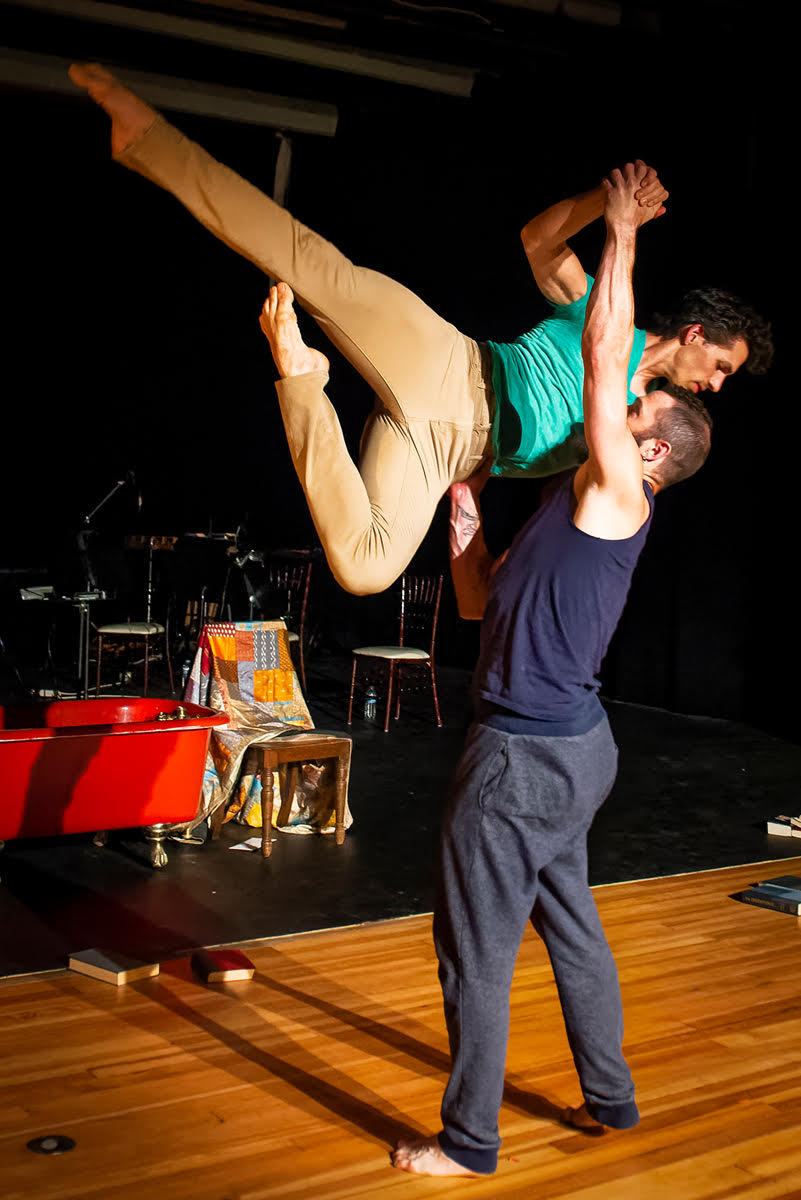
Photo Credit: Frank Zipperer.
DV: I know that most of your works are commissioned, and I’d really like to talk to you more specifically about your opera When Adonis Calls, which will premiere at Ashville Lyric Opera this May. It will also receive a production by the Thompson Street Opera (Chicago) this November, and was previously presented at Fort Worth Opera’s 2015 Frontiers Festival and Opera America’s New Works Forum in 2017.
CB: My current collaborator, John de los Santos, approached me about Adonis after I had just finished the first orchestral reading of my first full length opera, Antinous and Hadrian, which was originally conceived of in the American Opera Projects Composer and the Voice Series and later commissioned by Operamission. John told me he had this libretto that he had constructed based on select poetry by American poet, Gavin Dillard. I asked “what are we composing this for?” to which John replied, “I don’t know.” But, it was his initial passion, and he came up with the concept to create this new form of opera. However, this piece, at first, was a stretch for me as a composer.
DV: You saw the project as a challenge?
CB: I knew that this piece would make me a better composer for having written it. Even as an established composer, we still have to practice and embrace the challenge. Our practice is a bit different because it requires researching combined with the application of technique, and our familiarity with music as connected to living our lives. As a composer, we need and should have something to say. The libretto for Adonis called for sex scenes and dance music. These are things that I was excited about pushing myself to create, but I had never created before. I saw a foreseeable challenge. Still the project excited me and that is the number one thing I look for with commissions, as well as future projects that might not have a performance date yet lined up.
DV: The form of When Adonis Calls consists of three primary components including Poetry, Music, and Dance. Tell us how you brought these three forms together to make this production work.
CB: It’s surprising to me that this piece has gotten as far as it has because the staging is crucial to understanding the score. The plot is light, so it requires the dancers as visuals to pull it all together and keep the audience involved in the storyline. So there’s a lot there to feast on. The dancing is for very important moments that move the plot.
The form of the opera is done in five exchanges between the Poet (Gavin) and his newly found Muse. It is loosely based on Gavin’s book “Nocturnal Omissions — A Tale of Two Poets.” The opera begins with a written exchange of poems between the poets. The story culminates with their meeting in the flesh.
DV: But there is another level of communication beyond the poetry. Tell us more in-depth about that.
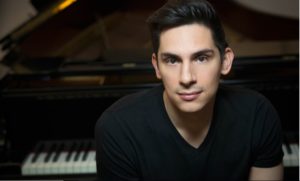
Clint Borzoni
CB: John decided that he wanted the poetry to be exclusively Gavin’s poetry. Gavin is portrayed as the elder of the two poets, and it is his more recent poetry that forms the libretto for the role of the Poet. The Young Muse is portrayed through Gavin’s earlier poetry. The recordings were higher in tempo than what we in the classical composition are more accustomed to. They were also a few beats above the standard pop song, which made them faster and even more driven. That was just one of the many scenarios that pushed and challenged me as a composer. Adonis is not traditional Opera.
DV: While the storyline is considerably revealing about the psyche between two romantically inclined men it also holds yet another mystery for the audience to discover as the opera progresses.
CB: The reason behind my committing to this piece was that it isn’t exactly a gay tragedy or love story. It is about two people trying to get to know each other, with the possibility of falling in love.
DV: Taking into consideration that the libretto is taken from Gavin as a youth and then current, it’s interesting to witness the unfolding from romantic to despise. The romantic reflecting youth and the aged representing despise.
CB: A common theme through the opera is about aging and coming to terms with that. This changes within the performance of the opera as well. At the beginning of the opera, the Poet is at his wits end, and even on the brink of suicide because of his age. He feels spent and washed up.
DV: His creativity is tapped out.
CB: Yes, but when approached by the Muse with these beautiful little poems that are full of hope, it temporarily pulls the Poet out of his destructive state of mind and gives him something to live for. As they get to know each other better, the opera shifts, and the muse flaunts that he is young and un-jaded. This inspires the Poet to get his second wind. Although he is older, he demonstrates his power as a wiser man. With this new confidence, the Poet dominates his Muse linguistically. All of this word-play builds to the finale where the two poets stand naked before one another, literally revealing everything.
DV: Don’t give away the ending of the story although it doesn’t really have an ending does it?
CB: We don’t know what happens beyond the opera. But, I wanted to write a gay opera in which no one dies and no one is heartbroken. However, I also didn’t want to write a huge, grand love story either. I had already done that with my opera, “Antinous and Hadrian.” I wanted to write something more intimate and something that everyone could relate to. There is this whole culture of people who always put a masque on when trying to get to know someone. The first few exchanges of the opera could represent the masque. As the poet and the muse get more intimate the masque begins to come off. The last two exchanges are the two trying to really get to know one another.
DV: What’s so intriguing about Adonis is its meeting of the minds. And the gay narrative is the perfect contrast for that representation.
CB: In the beginning exchange of Adonis, it’s about the poets showing off their wit and intellect. The mind is the subject of celebration because the Poet feels old and unwanted, yet the younger Muse pursues him. The Muse is attracted from the very beginning to the creative mind of the Poet. But, as the opera continues the Poet most commonly chasing his own youth grows more physical and carnal. The audience can see it’s a real thing, as they experience the piece. There is a reversal of roles as the poet becomes more invigorated while the muse wears down. When we’re young, we are curious and inexperienced, but think we are invincible. As we get older, we gain lots of wisdom and knowledge, but we need more inspiration to keep on going.
DV: What would you hope that the audiences takes away with them?
CB: Simplicity, walk in, sit down, turn off your cell phone, and let the moments wash over you. It’s ninety minutes of poetry, music, and dance. When Adonis Calls is a reflection upon its audience and what they see in themselves. Even though the music isn’t minimalistic, the plot is. The minimalism gives the audience the opportunity to relax enough to get into the trance of what transpires, instead of working to keep up with the production. The romantic music is very accessible and should place the audience in a place of acceptance. What I now love most about writing this piece is that there is so much one can get from this, yet for others, there is so little one can get.
This post was written by the author in their personal capacity.The opinions expressed in this article are the author’s own and do not reflect the view of The Theatre Times, their staff or collaborators.
This post was written by David Vernon.
The views expressed here belong to the author and do not necessarily reflect our views and opinions.

